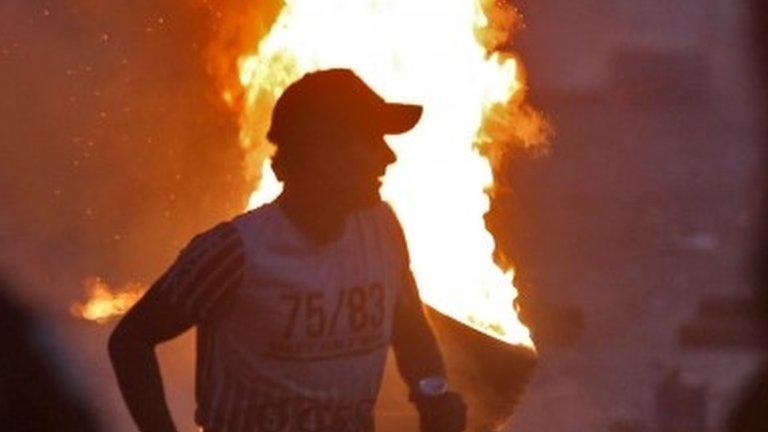Iraq protests: Baghdad curfew declared as unrest continues
- Published
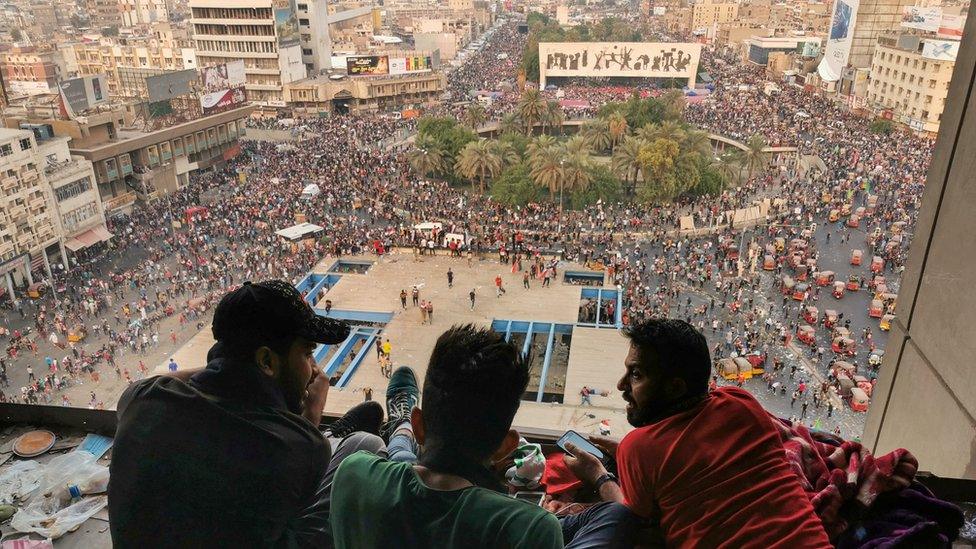
Thousands of protesters gathered in Baghdad's central Tahrir Square on Monday
The Iraqi authorities have declared a night-time curfew in the capital, Baghdad, on the fourth day of a fresh wave of anti-government protests.
Vehicle and pedestrian movement are prohibited between 00:00 and 06:00 (21:00-03:00 GMT) until further notice.
It came after five protesters were reportedly killed in Baghdad on Monday.
But thousands of demonstrators, including many students, defied the curfew, vowing to continue their protests in the city, reports say.
"We will stay here until the last day, even if there are a thousand martyrs," one protester was quoted as saying by Reuters.
More than 220 have died across the country since 1 October, when people began demanding more jobs, an end to corruption and better public services.
Prime Minister Adel Abdul Mahdi has promised to introduce reforms. But the protesters remain determined to try to sweep away his government.
At least 74 people were killed and 3,500 others were injured over the weekend as the protests resumed in Baghdad and elsewhere following a two-week pause that organisers said was designed to give Iraq's leaders time to respond to their demands.
Protesters cover their faces to shield themselves from tear gas in Baghdad
On Monday, protesters continued to occupy Baghdad's central Tahrir Square and security forces fired tear gas to deter any attempting to cross a bridge to the fortified Green Zone, which houses government offices and foreign embassies.
Elsewhere in the city, tear gas was also reportedly used to disperse school and university students boycotting their classes to join the demonstrations, despite a warning from Mr Abdul Mahdi to "stay away".
The curfew could mean that security forces will attempt to disperse the crowd in Tahrir Square overnight. But one protester told Reuters news agency: "We will stay here until the last day, even if there are a thousand martyrs."
Meanwhile, the prime minister said in a Facebook post that he had told the UN Special Representative for Iraq, Jeanine Hennis-Plasschaert, that security forces personnel had been given "strict directives to protect the right of peaceful protests".
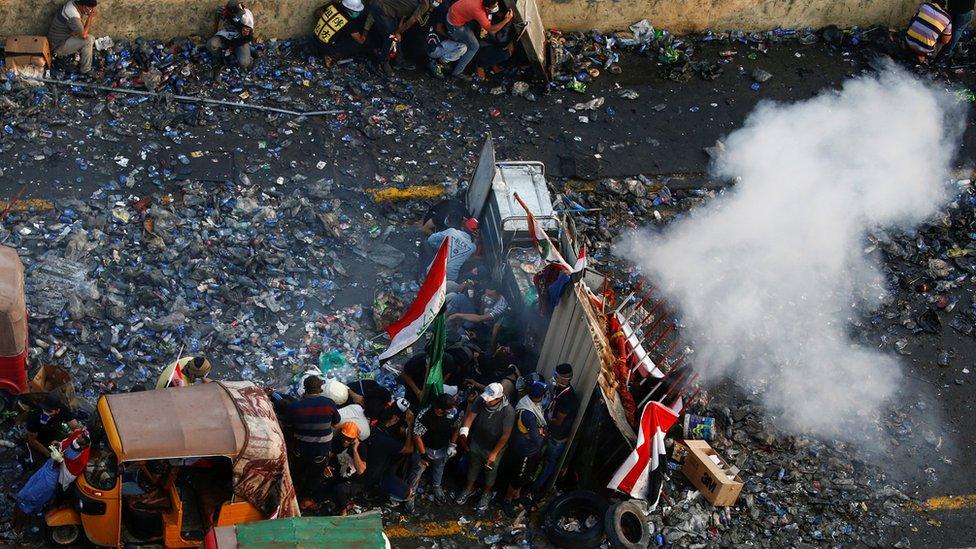
Security forces fired tear gas to stop protesters moving on the Green Zone
Mr Abdul Mahdi also told her about the "urgent decisions and steps taken" towards meeting the protesters' demands, according to the post.
After the first wave of protests, the prime minister promised to carry out a cabinet reshuffle and cut the salaries of high-ranking officials. He also said he would allocate $66m ($51m) to support the unemployed, set up training programmes for youths, and build 100,000 homes in poor areas.
Also on Monday, MPs voted to dissolve all provincial and local councils outside the Kurdistan Region, withdraw "all privileges" granted to the president, prime minister and Speaker of parliament, and to form a committee to amend the constitution.
However, the measures were dismissed as a "sham" by Shia cleric Moqtada Sadr, who controls the largest bloc in parliament and wants early elections.
- Published25 October 2019
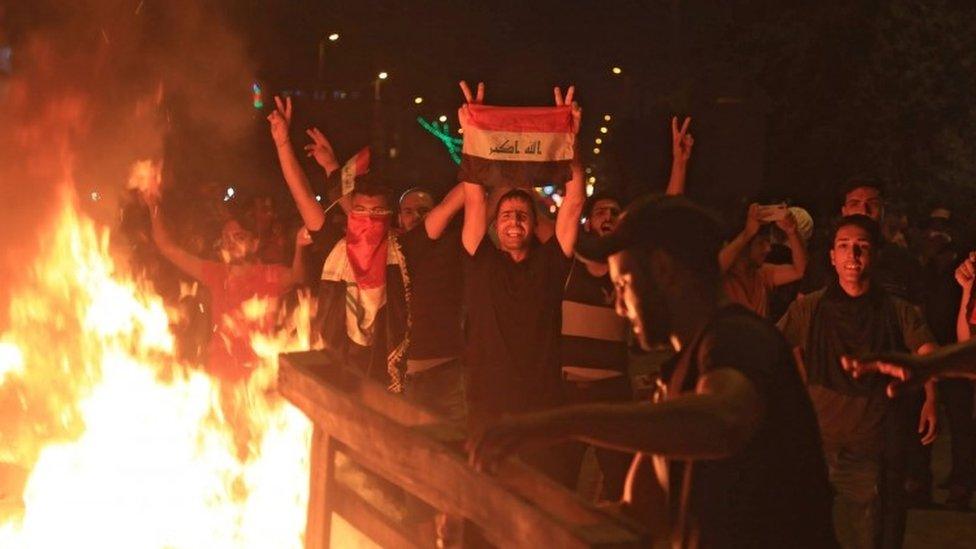
- Published25 October 2019
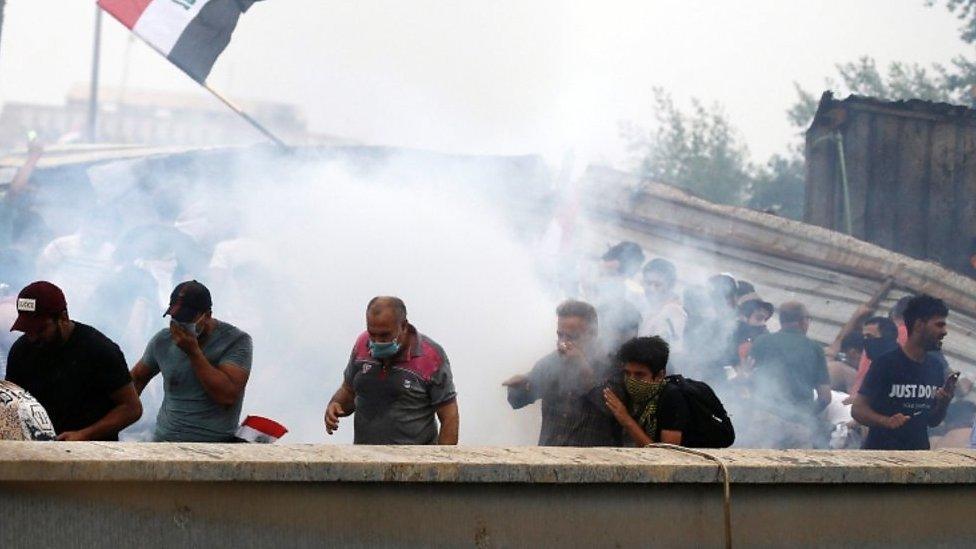
- Published7 October 2019
